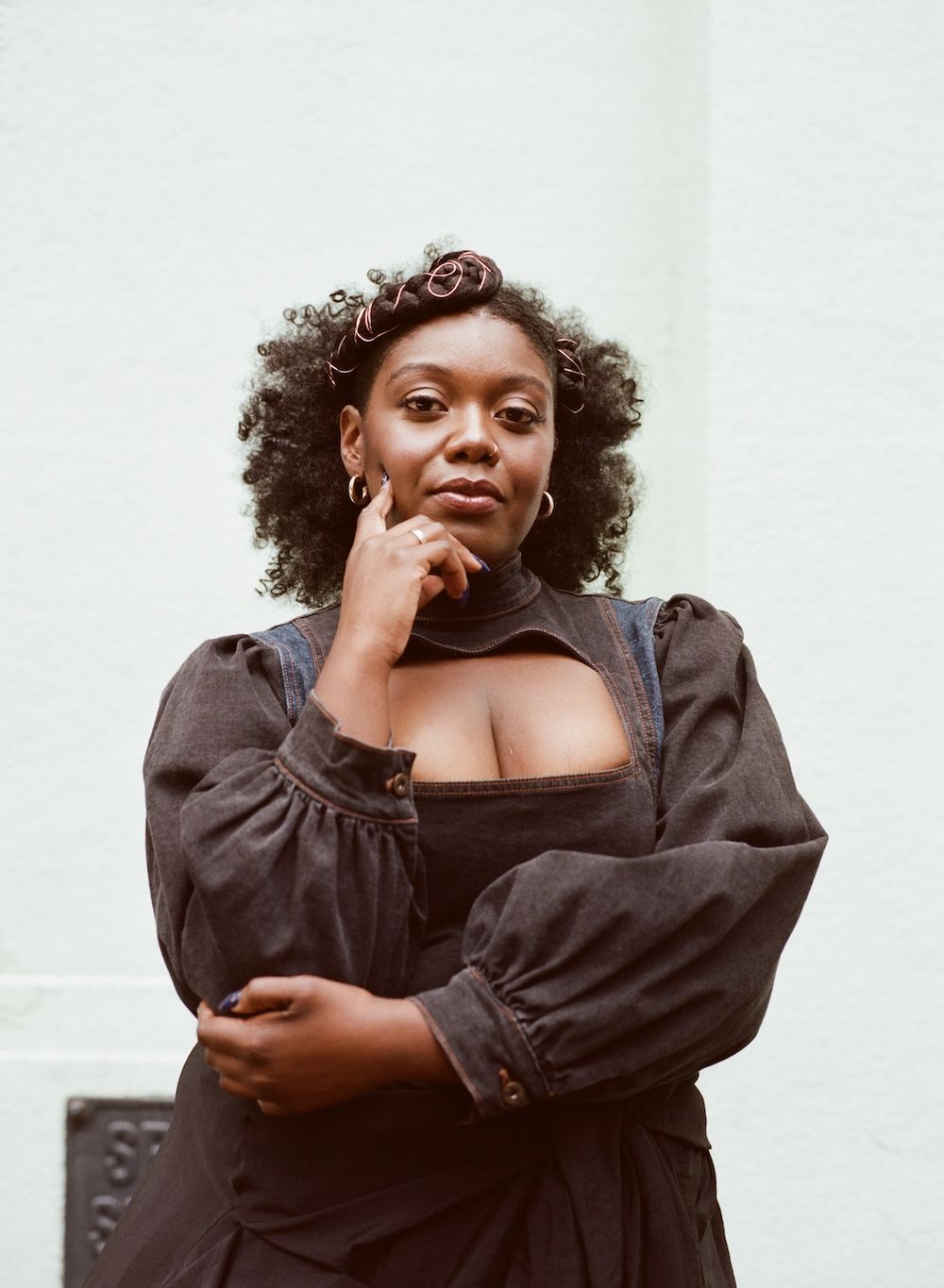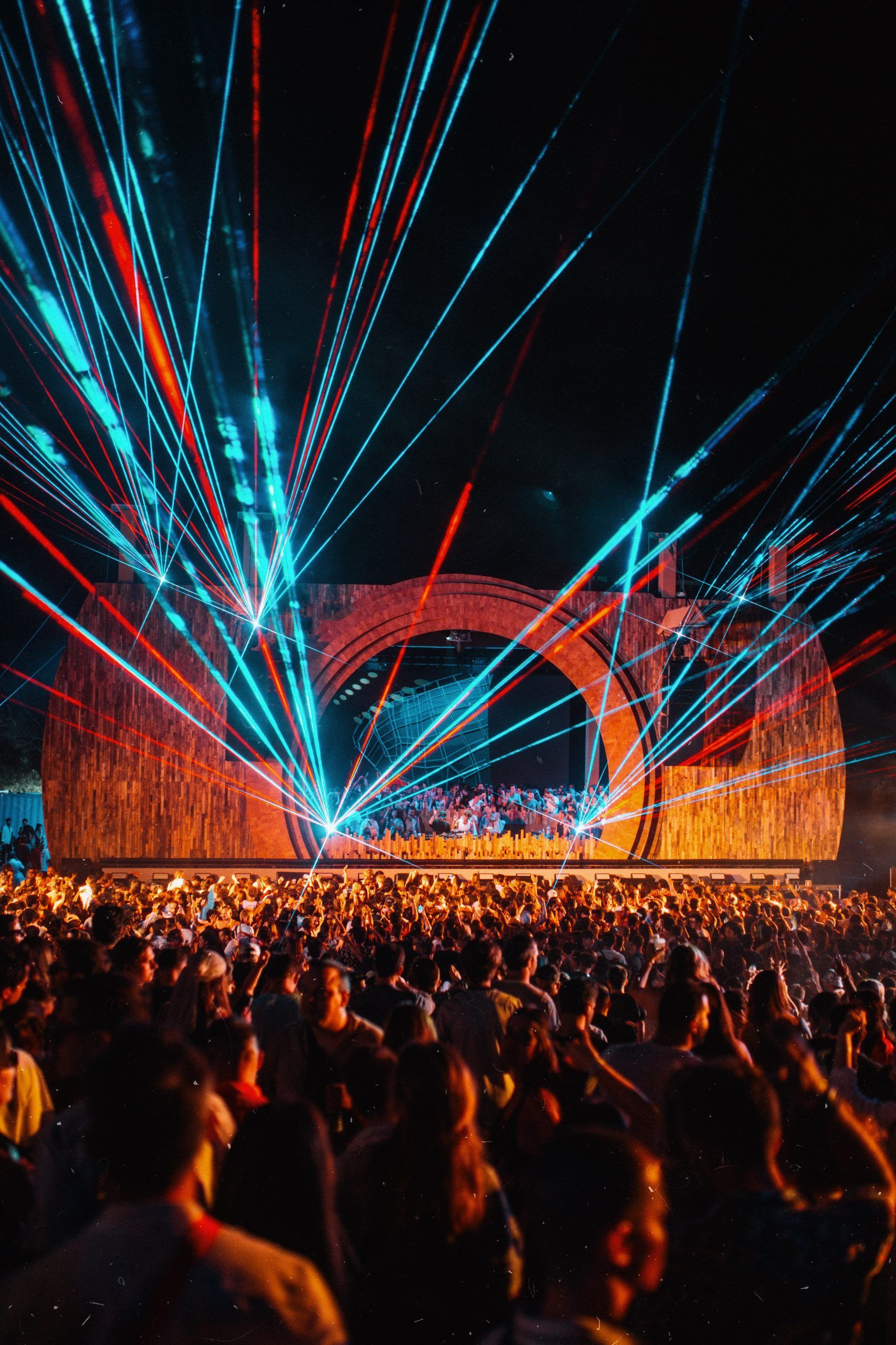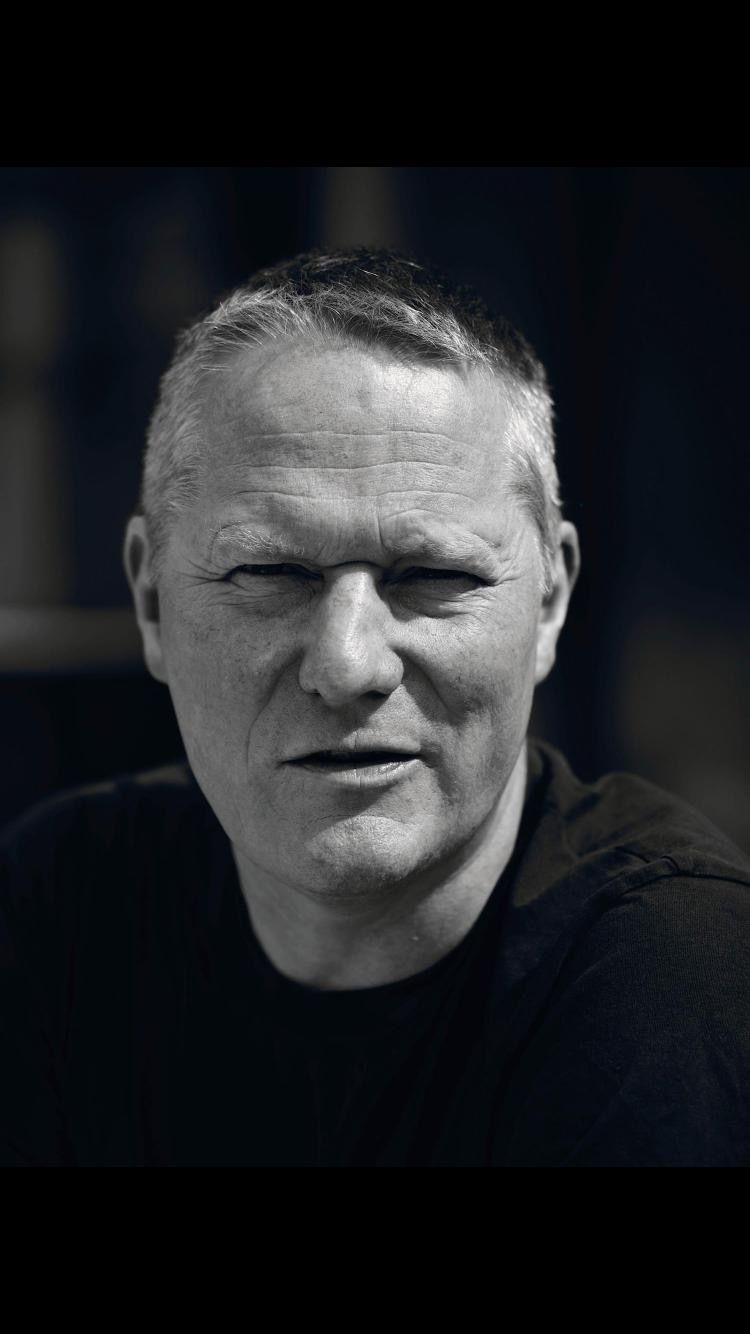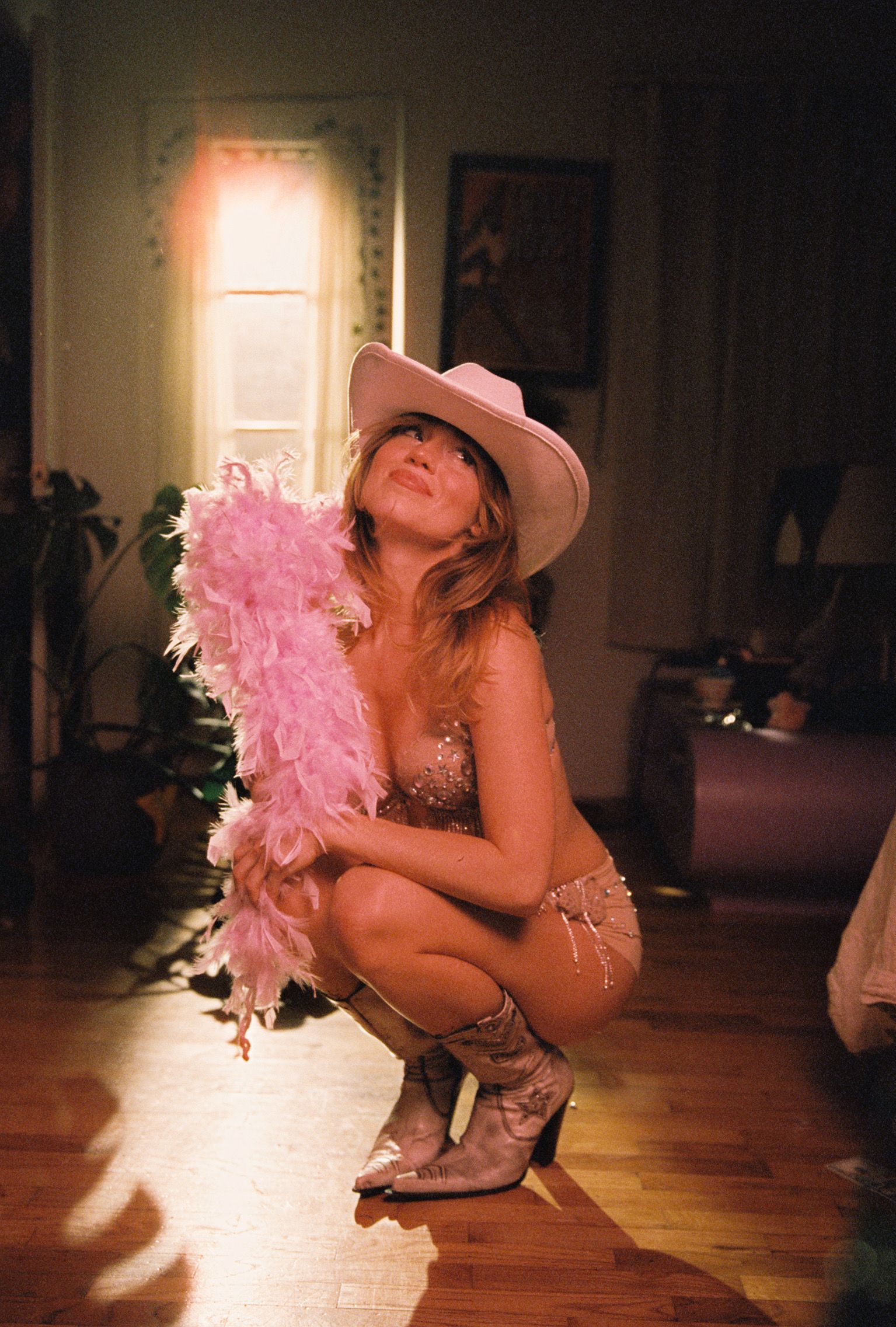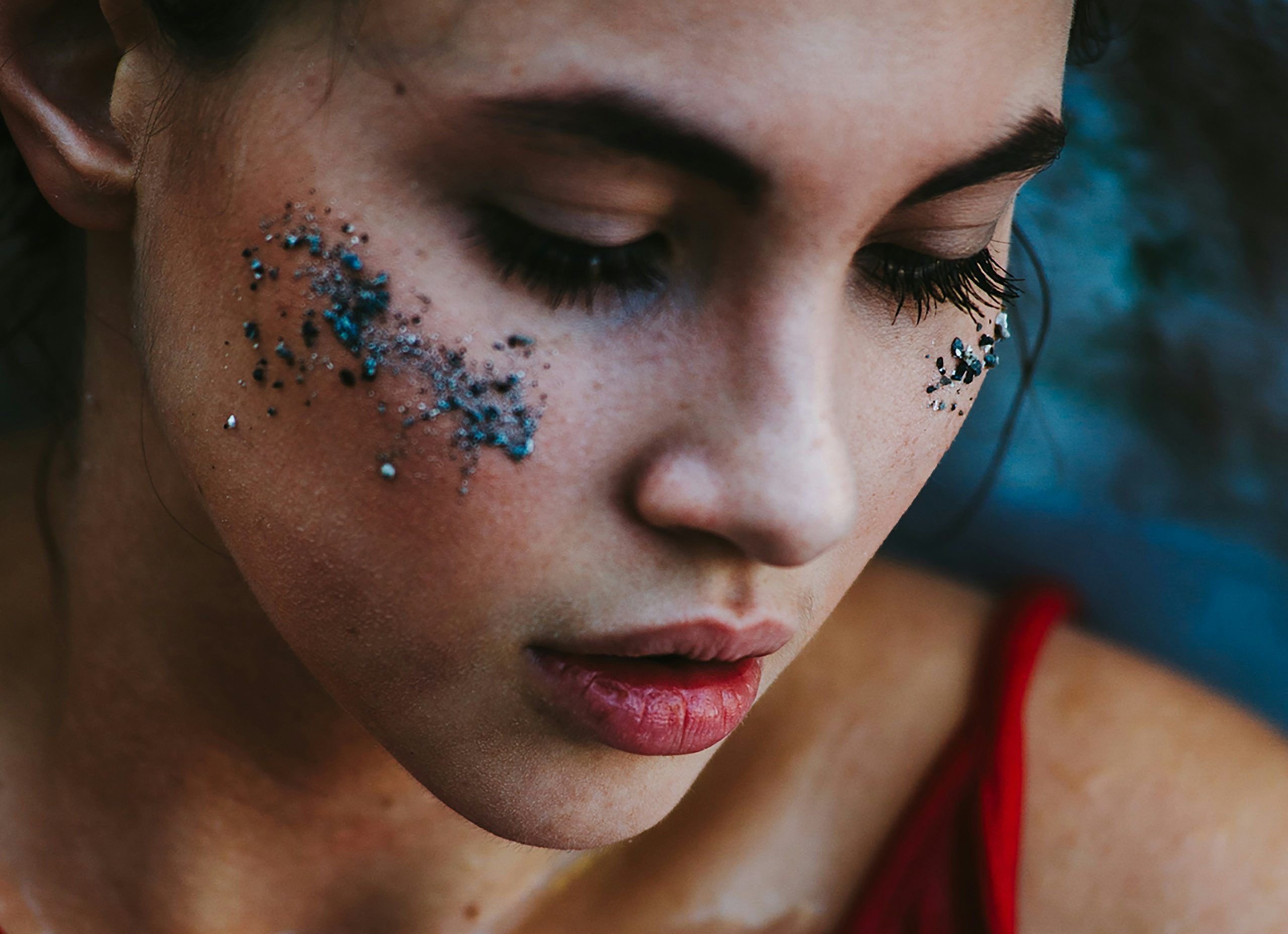Yazmin Lacey’s debut album, Voice Notes, is steeped in a rawness and honesty from the songstress that is a shift from what she has previously displayed across her three EPs, Black Moon (2017), The Sun Dips 90 Degrees (2018) and Morning Matters.
The album was made with producer JD. Reid, David Okumu and Melo-Zed further display Yazmin’s ever-changing and evolving sound that stemmed from her jam sessions and letting go of what a debut album should be and instead leaning into what feels right and doing things that excite her. The result is work that is true to Yazmin’s raw vocals and unpolished approach to music, displayed in a way unfamiliar to her work.
The album is a rich body of work from start to finish and has Yazmin infusing her 70s and 80s soul beats against the background of the jazzy rhythms and sonics which were introduced from the singles Pieces, Bad Company and Late Night People and have continued throughout the album. Taking a departure from her previous EP trilogy Black Moon, When The Sun Dips 90 Degrees and Morning Matters. This album is showing Yazmin in a new light which is way more deeper and personal than she has been before.
Speaking with Yazmin, we discussed everything from the album, letting go, being vulnerable, the upcoming show and more.
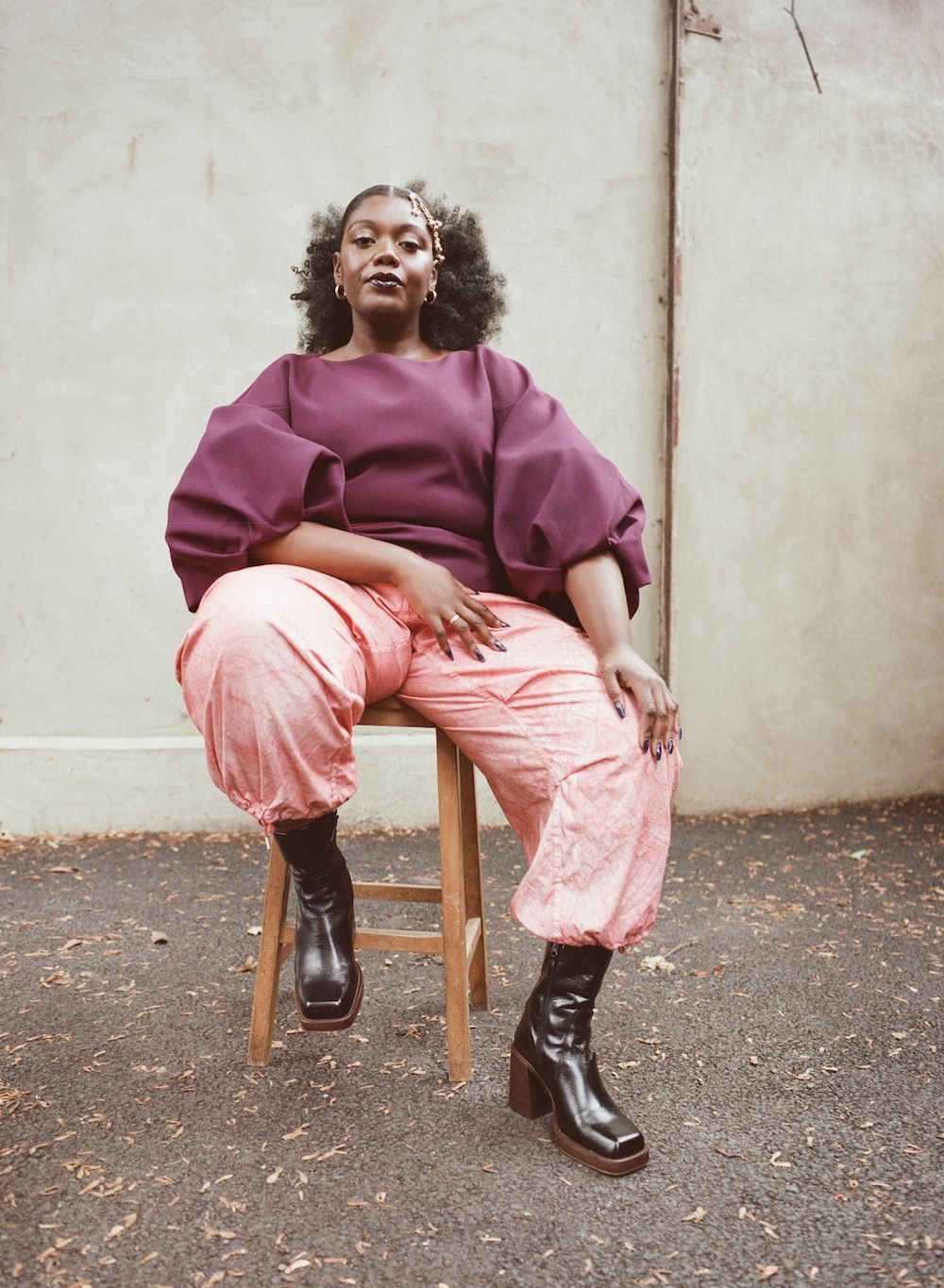
First of all, congratulations on the album; getting right into it, why the title Voice Notes?
I called the album Voice Notes because that’s how many ideas start, as little voice notes to myself, and voice notes represent an immediate reaction to things; well, my voice notes do, anyway. I rant on them, and sometimes I feel like it’s just like that with music. So go and let it out and see what comes from it, and that’s how I thought about the album, and Voice Notes suited it so well.
What about the artwork? This is very different from what you’ve previously done before.
Honestly, I had no clue what the actual album process entailed when I made all three EPs. I still had my old job and needed to learn what it was like to make a project. I was adamant that I didn’t want my picture on the front, and it felt much safer to do something which could have been drawn to as a character or the embodiment of the thing. I had a friend who did the covers for the EPs, and at first, I thought I would get her to do the album, but then the sound was so different, and I wanted to refresh that a bit. Also, this album is so honest and vulnerable, and having my face on it made sense. And I suppose for me it’s a mini statement of confidence because it’s something that I’ve shied away from before, and I just thought, like now, you had so long, made the music to be proud of it, and, you know, put your image to it, we just wanted something classic. So I went to my manager’s house. We were chilling and chatting, and I saw this photo on the side of her daughter, her partner and her. And it was gorgeous, black and white ones from the photo booths. And we were talking about all the artwork, and when I saw the picture, I was like, that’s it. I was like I’m going to the photo booth; that’s the cover. So we did it for Pieces, and then I loved them so much, and it felt so easy, you know, not a big, just low-key. Let’s do this for the whole thing. So we shot the cover in a photo booth; we found this guy with many different types of photo booths, and yeah, it was really low-key and calm. So we went to where the photo booth and had a little chat, and then we just went for it. I knew I wanted my hands, which were a little more protection.
Where did the process of making the album begin for you?
I started making the album quite a long time ago. I attempted to start making it before and around the last EP that came out. I’d set myself the task of, like, now I’m going to make an album, and it didn’t come together, so I left it for quite some time. I remember thinking I had to have everything planned out almost before I started, and I realised I didn’t have to do that. So I just started making music with people, having conversations, and joining the ideas floating around in my head. So the album is like little snapshots of what’s been going on for me over the past two years or the kind of conversations I’ve been having or situations I’ve been in.
You released three solid EPs, so did you feel pressure going into your debut album?
I did feel the pressure at first, but the pressure always comes from considering other people. With music, I feel like as long as I do what feels right to me in the moment, all I’m supposed to do is express myself. There were times when I thought the EPs sat in a world people knew and would expect the album to sound the same. But then the process of doing those three records gave me the ability to let go of things rather than have so much weight on the album. In creating it this time, let me make what feels good. I have to amuse myself as an artist as well, and I have to do or try new things that excite me. So I let go of that and told myself I would make what feels good, fun, and natural.
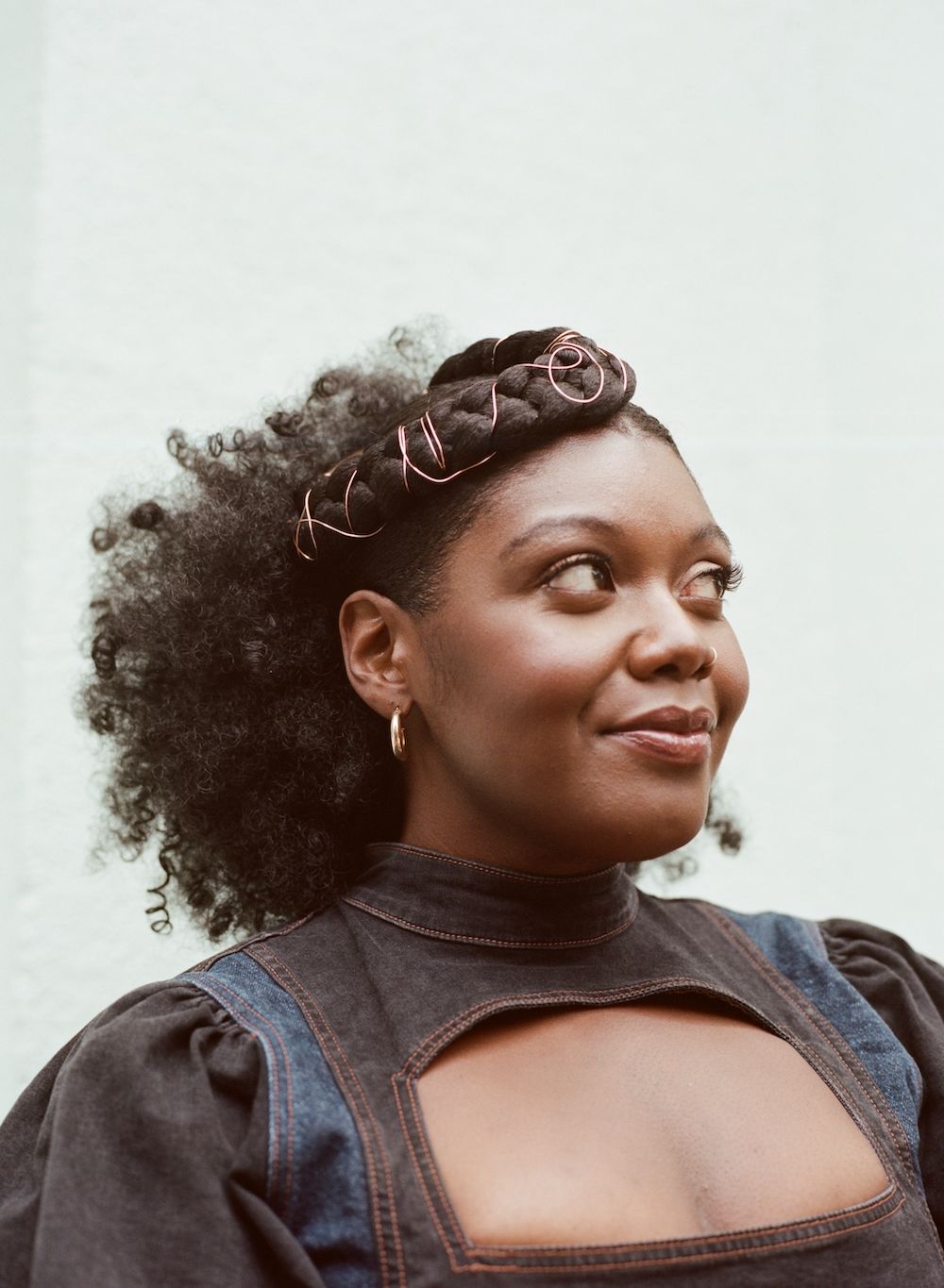
How was the process for you to build the album and bring it together sonically?
I’ve always had this thing; I don’t know what I’m going to make, but there are just things in my music that I love that always come up. And I thought about those things. I’m a big fan of music from the Seventies; I’m a big fan of British Soul music, Soul music in general, and Neo-Soul. Those are things that played a part in the album and had an influence; typically, when I’m making music, I tend not to listen to anything similar to what I’m making. I listen to things that are different from what I would make. However, there are certain things in that style and that of music and artists and different producers; the way they hear something in the way our dialogues are different with one another gave it the sound you hear on the album. I’ve also always thought about things needing to be not shiny. I always like to keep my vocals super raw. I’m a big fan of the initial idea. So if I find the crux of something I like, that’s it. I’ll go with instinct. So a lot of this comes from jam sessions in the studio; that’s always how I’ve worked. I think making music or humming something in my head and then taking that to a jam and saying this is how I hear the bass line this out here and being like, can we try it out? So I wanted it to sound raw but warm and comforting, and I wanted it to sound rich sonically, and some elements of 70s and 80s stuff are in there, all the things that I love.
You mentioned that rawness and not being too polished are a big part of the album’s sound, so in terms of the lyrics, how did that come across in the writing process?
There’s one thing where I feel like, Oh my gosh, do I always write this sombre, melancholy music in my lyrics? Sometimes I feel really shy about that, but it is what music has always been in my life, especially since making it is an outlet. That’s where I’m putting all that stuff that feels uncomfortable or doesn’t necessarily make sense. Any extreme emotion, whether it’s like fear, desire or sadness or loss or love, makes me want to write, and I suppose because music is a way that I make sense of things, maybe that’s why there is a lot of imperfection because I tend to be working on it in real-time. Sometimes when I meet people, they say they take stuff from my lyrics. It’s lovely to hear, but I’m also writing it to tell myself, not necessarily even to preach, like I’m trying to work out. These are the things that I’m noticing from how I see the world, what’s happening in it, and my responses to them. Music has expanded my life in so many ways, not just the art but personally. The experiences I’ve had, the places I’ve gone now from music. It makes me evaluate myself more than I would if I wasn’t making music. So yeah, it just comes out. But then there’s a power in saying those because it always feels like a we thing rather than a you thing. Except I never think about that until it happens, but when Pieces came out, people would write messages or say, this feels relatable; it’s like yeah, it’s not just me.
The introduction track to the album is the single Pieces. Why did you choose this song lead with?
I started making a lot more music before I made Pieces. It was one of the last ones I started making circumstantially. It came from a break-up that happened during the album process. So I had this thing happen, which I wasn’t even sure about sharing because one point didn’t even know whether I wanted to put it on there. I was making it for me to let go of all the things you can’t say sometimes and was like, I don’t want to put it on the album, we had so many conversations about it, but I’m happy that I did. In the end, I said, this feels like some time I need to let go of. I wanted to let go of this to move on mentally, compartmentalise it, and shift some energy. And then, people resonated with it, and I’m just such a big of a good groove as well, like a big groove, a big job. But that was wall stripped back. So it was nice to try something new in that way as well.
What has the journey of making the album been like?
In the intro of the album, in the first track, Fylo Tweet is me talking to my friend, which is evident about how it feels. It feels fun and exciting, and I feel proud of myself and everyone who put time and energy into this. I struggle to finish things, to be honest. So I’m glad I’ve seen this vision through to the end. That’s a big achievement for me, no matter how it is received, especially since I feel like, as a creative, having a vision and seeing it all the way through is a huge achievement. To put it out is one thing. That doesn’t. It doesn’t feel vulnerable or brave when you’re in the studio, and you’re with people you’ve been talking to for months and months and months and jamming with for hours and hours and hours. It doesn’t feel that personal as much to say those things. But now that is like is such a personal thing, and people can see you a little bit more, and it does feel exposed, and I do feel nervous about that just because it is your business.
What have learnt and taken away throughout the experience of making the album?
One of the things that I learned through this process is to enjoy the process, enjoy everything about great in that because, you know, it’s not that it’s not mine or even a thing to be possessed by anyone, but it’s just you have to let it go a little bit. Once you put the project out into the world, it’s not mine anymore, and that’s not my business. Now everyone is going to take from it what they take from it, and I can’t control what that should be. So you have to let that go out into the world and see which way will be.
You have the show coming at the end of March at St Pancreas Old Church; what can we expect in how you are bringing the album to life?
Because I’ve always come up through like winging it in a jam session, I think about what something will sound about live. That’s one time I think about it past the stage where it’s just the process, but not what people think again. It’s more like some things as we’re playing it in the jam before it gets moulded into an actual track and properly produced. That is the kind of thing that is exciting. I’ll be like, I can’t wait to play that live. I want to play that live because, in that spot, that feeling is only slightly recreated when it’s just like musicians playing it simultaneously. We are in rehearsals for the show, so I’m at that process now where I’m mapping out how I want it to sound and how to try and translate some of that story onto a live show if I can.
What can we expect from you next?
I would love to play this music out. That’s one thing I want to do is like create a really good live show for this thing and hopefully get the opportunity to play that. So that would be next. And then I want to make more music. I have such big gaps between the times that I make stuff. It’s given me the ability to know that you can finish ideas even if you don’t want to put them out. I’ve done a lot. Some tracks didn’t make the album, and I just. I want to experiment more, make more things, and collaborate more. You know, I learnt loads about production and how an actual album comes together. And from that, now I’ve got more ideas, and I want to do some more, make some more music.
Voice Notes is out now, follow Yazmin Lacey via @yazminlacey
Interview Seneo Mwamba

